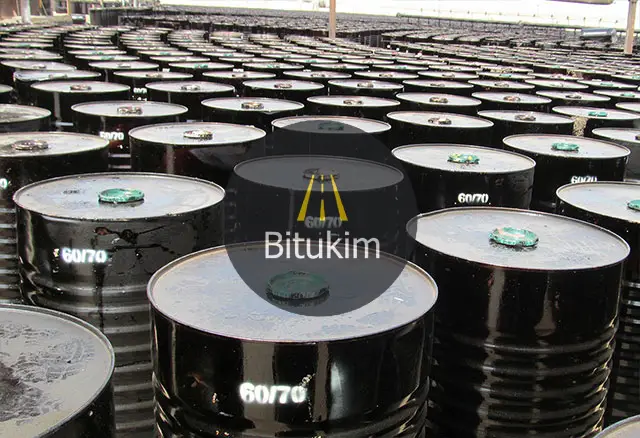various uses and applications of Bitumen 60/70 in different industries or projects.

Bitumen 60/70 is a versatile grade of bitumen widely used in various industries and construction projects due to its specific physical and chemical properties. Below are some key applications and uses across different sectors:
1. Road Construction
a. Hot Mix Asphalt (HMA):
- Applications of Bitumen 60/70: Bitumen 60/70 is primarily used in the production of hot mix asphalt for road construction. It provides a durable, high-quality surface that can withstand heavy traffic loads and varying weather conditions.
- Benefits: Its hardness and performance characteristics ensure longevity and resistance to deformation, making it ideal for highways, urban roads, and rural roads.
b. Patching and Repair Work:
- Applications of Bitumen 60/70: Used for repairing potholes, cracks, and other road surface damages.
- Benefits: Offers strong adhesion and flexibility, ensuring effective and long-lasting repairs.
2. Pavement Construction
a. Surface Dressing:
- Applications of Bitumen 60/70: Bitumen 60/70 is used in surface dressing applications, where a thin layer of bitumen is applied to existing pavements followed by aggregate chippings.
- Benefits: Enhances skid resistance and extends the lifespan of the pavement surface.
b. Seal Coating:
- Applications of Bitumen 60/70: Employed as a seal coat to protect and prolong the life of asphalt pavements by preventing water ingress and oxidation.
- Benefits: Provides a waterproof layer that helps maintain pavement integrity and appearance.
3. Roofing
a. Bituminous Membranes:
- Applications of Bitumen 60/70: Bitumen 60/70 is used in the production of bituminous membranes for flat and low-pitched roofs.
- Benefits: Offers excellent waterproofing and durability, ensuring long-term protection against leaks and environmental conditions.
b. Roof Coatings:
- Applications of Bitumen 60/70: Used in roof coatings and sealants to provide additional protection and extend the life of roofing systems.
- Benefits: Enhances the roof’s resistance to weathering and UV degradation.
4. Construction of Airfields and Runways
a. Runway Surface Construction:
- Applications of Bitumen 60/70: Bitumen 60/70 is utilized in the construction of airfield and runway surfaces, where it forms part of high-performance asphalt mixes.
- Benefits: Its properties ensure smooth, durable, and skid-resistant surfaces essential for safe aircraft operations.
5. Industrial Applications
a. Pavement for Industrial Facilities:
- Applications of Bitumen 60/70: Used in the paving of industrial sites and facilities, including warehouses and manufacturing plants.
- Benefits: Provides a strong, resilient surface that can support heavy machinery and high-traffic loads.
b. Bitumen-Based Products:
- Applications of Bitumen 60/70: Bitumen 60/70 is used in the manufacture of various bitumen-based products such as adhesives and sealants.
- Benefits: Offers versatility and strong bonding properties in different industrial applications.
6. Environmental and Energy Applications
a. Bitumen as a Binding Agent:
- Applications of Bitumen 60/70: Employed in environmental projects as a binding agent for stabilizing contaminated soils or creating secure landfill liners.
- Benefits: Ensures containment and reduces environmental impact through effective binding and sealing properties.
b. Energy Sector:
- Applications of Bitumen 60/70: Bitumen 60/70 can be used in the production of energy infrastructure, such as bituminous coal or oil sands processing.
- Benefits: Contributes to the energy sector by improving the quality and performance of energy-related materials.
7. Coastal and Waterway Construction
a. Embankment and Dike Construction:
- Applications of Bitumen 60/70: Used in the construction of embankments and dikes to protect coastal areas and waterways.
- Benefits: Provides a robust and water-resistant barrier that helps prevent erosion and flooding.
Conclusion
Bitumen 60/70 is a highly versatile material with a wide range of applications across various industries. Its properties make it ideal for road construction, pavement, roofing, airfield surfaces, industrial sites, environmental projects, and energy sector applications. Understanding its diverse uses helps ensure that it is applied effectively to maximize performance and durability in different projects.

